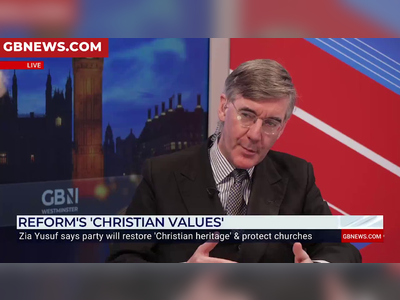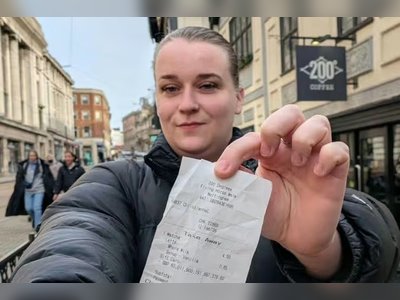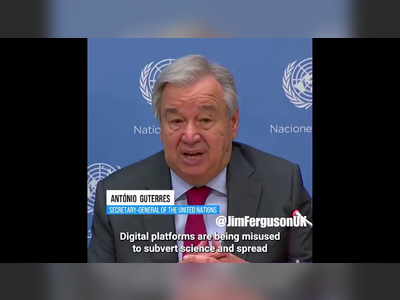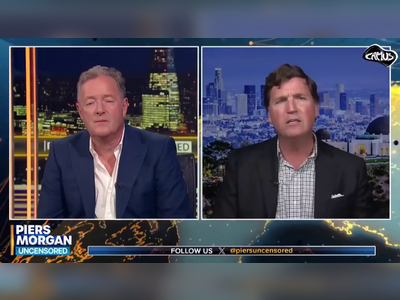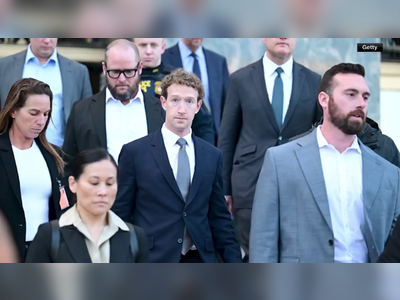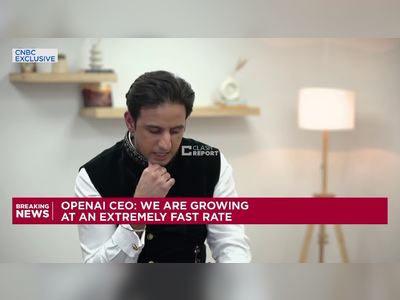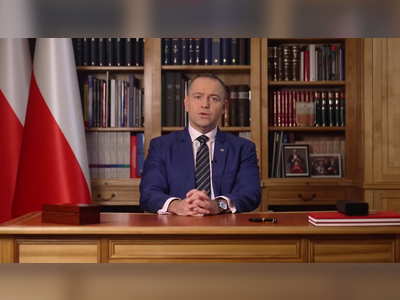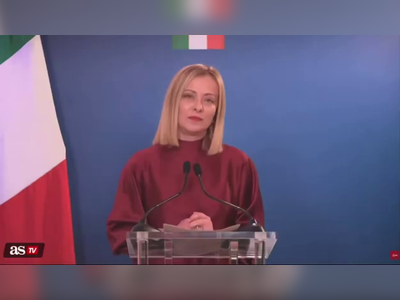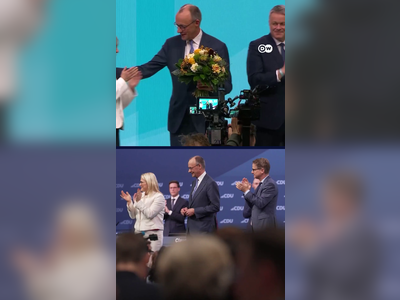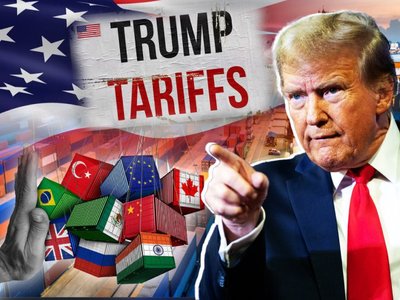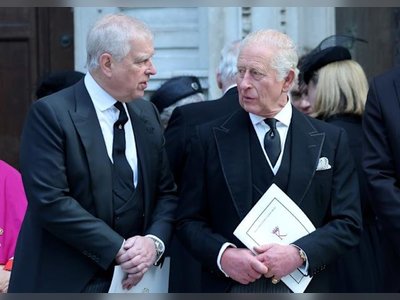Legal Drama Unfolds: Van Lienden and Partners at the Heart of a 100-Million-Euro PPE Scandal
Amidst claims of innocence and accusations of fraud, the trial exposes deeper distrust towards corporate conduct during crises.
In an emotionally charged atmosphere, the courtroom in Rotterdam witnessed the preliminary hearing of a high-profile legal affair surrounding Camille van Gestel, Bernd Damme, and Sywert van Lienden.
This trial, centered on a lucrative PPE deal established during the pandemic, has captivated the nation with its blend of alleged deception and the socio-political implications of such corporate conduct in times of national crisis.
Camille van Gestel candidly expressed a sense of foregone condemnation, remarking, 'We must apparently hang, come what may.' The partners involved, including van Lienden—a figure formerly noted for his media presence—portrayed themselves as victims of a prosecutorial crusade rather than perpetrators of fraudulent activities.
Their accounts detailed instances of perceived injustice: from distressing arrests to relentless interrogations.
Van Lienden, speaking with palpable emotion, recounted an arrest he deemed disproportionate to the charges, conveying his ordeal of being held and interrogated under duress without the presumption of innocence afforded to him.
This narrative of besieged innocence is starkly contrasted by the voluminous 17,000-page dossier presented by the public prosecutor.
The charges are severe: alleged embezzlement of funds from staffing giant Randstad, falsification of documents sent to e-commerce company Coolblue, and misleading the Dutch government to secure profits from a PPE deal worth €100 million.
The prosecution argues these dealings clandestinely enriched the partners, as profits were funneled to their private ventures.
Van Lienden, undeterred by the stakes, signaled his intent to dismantle the charges during the full hearing, particularly those involving Randstad and Coolblue.
He insisted that Coolblue had received recompense 'with interest' for any miscalculated expense reports, claiming it was an inadvertent error rather than a deceitful maneuver.
Testimonies of betrayal permeate the trial.
A volunteer, who filed a complaint after realizing he had worked gratis for what he assumed was a charitable cause, becomes a microcosm of a broader narrative of disenchantment and exploitation.
Van Lienden rebuffed the volunteer’s claims, suggesting ulterior motives linked to financial gain that contradict his assertions in the legal documents.
The judiciary's dismissal of a motion to dismiss charges relating to the state underscores the gravity of the allegations.
Prosecutors contend that the accused masked their business operations under the guise of a charitable foundation amid the pressing public need for PPE, exploiting the trust of the state for personal gain.
Randstad’s legal representative, emphasizing moral ramifications over monetary recompense, declared the foundation’s motivations as one rooted in righteous indignation.
The sentiment of disillusionment transcends corporate realms, with Coolblue demanding formal apologies for its workforce’s zealous efforts misappropriated under dubious circumstances.
Amidst these contentious claims, Stichting Hulptroepen U.A., the charity now dissociating from the entrepreneurs, suggests further legal action, citing newly surfaced evidence of misused assets for personal gain.
The charity seeks restitution of funds, redirected towards Long Covid initiatives.
This unfolding legal drama not only serves as an exposé of alleged corporate malfeasance but also as a litmus test of public trust and the ethical boundaries of business conduct during national emergencies.
The outcomes of this case could have far-reaching implications for corporate governance and accountability standards in the Netherlands and beyond.
This trial, centered on a lucrative PPE deal established during the pandemic, has captivated the nation with its blend of alleged deception and the socio-political implications of such corporate conduct in times of national crisis.
Camille van Gestel candidly expressed a sense of foregone condemnation, remarking, 'We must apparently hang, come what may.' The partners involved, including van Lienden—a figure formerly noted for his media presence—portrayed themselves as victims of a prosecutorial crusade rather than perpetrators of fraudulent activities.
Their accounts detailed instances of perceived injustice: from distressing arrests to relentless interrogations.
Van Lienden, speaking with palpable emotion, recounted an arrest he deemed disproportionate to the charges, conveying his ordeal of being held and interrogated under duress without the presumption of innocence afforded to him.
This narrative of besieged innocence is starkly contrasted by the voluminous 17,000-page dossier presented by the public prosecutor.
The charges are severe: alleged embezzlement of funds from staffing giant Randstad, falsification of documents sent to e-commerce company Coolblue, and misleading the Dutch government to secure profits from a PPE deal worth €100 million.
The prosecution argues these dealings clandestinely enriched the partners, as profits were funneled to their private ventures.
Van Lienden, undeterred by the stakes, signaled his intent to dismantle the charges during the full hearing, particularly those involving Randstad and Coolblue.
He insisted that Coolblue had received recompense 'with interest' for any miscalculated expense reports, claiming it was an inadvertent error rather than a deceitful maneuver.
Testimonies of betrayal permeate the trial.
A volunteer, who filed a complaint after realizing he had worked gratis for what he assumed was a charitable cause, becomes a microcosm of a broader narrative of disenchantment and exploitation.
Van Lienden rebuffed the volunteer’s claims, suggesting ulterior motives linked to financial gain that contradict his assertions in the legal documents.
The judiciary's dismissal of a motion to dismiss charges relating to the state underscores the gravity of the allegations.
Prosecutors contend that the accused masked their business operations under the guise of a charitable foundation amid the pressing public need for PPE, exploiting the trust of the state for personal gain.
Randstad’s legal representative, emphasizing moral ramifications over monetary recompense, declared the foundation’s motivations as one rooted in righteous indignation.
The sentiment of disillusionment transcends corporate realms, with Coolblue demanding formal apologies for its workforce’s zealous efforts misappropriated under dubious circumstances.
Amidst these contentious claims, Stichting Hulptroepen U.A., the charity now dissociating from the entrepreneurs, suggests further legal action, citing newly surfaced evidence of misused assets for personal gain.
The charity seeks restitution of funds, redirected towards Long Covid initiatives.
This unfolding legal drama not only serves as an exposé of alleged corporate malfeasance but also as a litmus test of public trust and the ethical boundaries of business conduct during national emergencies.
The outcomes of this case could have far-reaching implications for corporate governance and accountability standards in the Netherlands and beyond.
